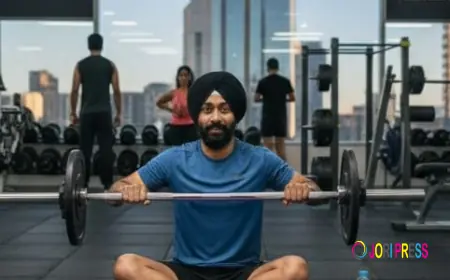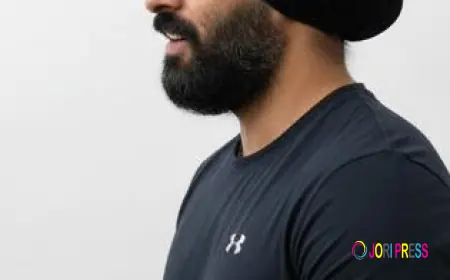How to Find an Exceptional Criminal Defence Lawyer: Skills, Qualities, and the Types of Cases They Handle
This article guides readers on how to choose an exceptional criminal defence lawyer in Australia by highlighting key skills, personal qualities, and the types of cases they typically handle.

When you’re facing criminal charges, whether minor or severe, the lawyer you choose can significantly affect the outcome. An exceptional criminal defence lawyer doesn’t just understand the law—they know how to apply it with precision, build a strong defence, and represent your best interests at every stage. In this article, we’ll explore how to find the right criminal lawyer, the essential skills and qualities to look for, and the common types of criminal cases they handle in Australia.
Why Choosing the Right Defence Lawyer Matters
Criminal law is a complex and constantly evolving field. Whether you’re charged with a summary offence, such as shoplifting, or a serious indictable offence, such as assault or fraud, the legal strategies involved can be challenging to navigate without expert help. A strong criminal defence lawyer can mean the difference between a conviction and an acquittal—or a harsher sentence versus a more lenient one.
A skilled defence lawyer not only understands the law but also knows how to negotiate, build a persuasive case, and protect your rights throughout the legal process. That’s why choosing the right one is not just important—it’s essential.
How to Start Your Search
If you’re searching for a criminal defence lawyer in Australia, begin by looking for:
-
Specialists in criminal law: Choose a lawyer who focuses exclusively or primarily on criminal matters rather than one who practices across many areas.
-
Local experience: Lawyers familiar with your local court system will understand how prosecutors, magistrates, and judges operate in your area.
-
Strong reputation: Look for a professional with positive client feedback, peer recognition, and a track record of favourable outcomes.
-
Clear communication: You should feel comfortable asking questions and confident that your lawyer is listening, advising clearly, and keeping you informed.
Core Skills of an Exceptional Criminal Defence Lawyer
1. Legal Knowledge & Analytical Thinking
An excellent lawyer must have a deep understanding of Australian criminal law, including relevant statutes, procedural rules, and case law. They need to analyse the facts critically, assess evidence, and spot legal issues that can be used to the client’s advantage.
2. Investigation & Case Preparation
Preparing a defence goes far beyond reviewing the police brief. The best lawyers conduct their own investigations—interviewing witnesses, collecting supporting documents, and identifying inconsistencies in the prosecution’s case. Every detail counts.
3. Negotiation Skills
Many criminal cases are resolved through plea negotiations or alternative dispute resolution. A skilled lawyer knows when to push for a deal, when to reject an offer, and how to present mitigating circumstances to achieve the best possible result for their client.
4. Courtroom Advocacy
When a matter goes to court, your lawyer’s ability to advocate is critical. They must question witnesses effectively, challenge evidence, and argue persuasively before a judge or jury. A confident, composed, and strategic presence in the courtroom is non-negotiable.
5. Strategic Thinking
Criminal law is not just about knowing rules—it’s about understanding people, systems, and timing. Exceptional lawyers know how to build a defence strategy that adapts to the situation and takes advantage of every legal opportunity.
Personal Qualities to Look For
1. Experience
Years in practice matter—especially if your case is complex. A lawyer who has handled cases similar to yours will be better equipped to anticipate challenges and respond effectively.
2. Integrity & Ethics
Trust is the foundation of the lawyer-client relationship. An ethical lawyer will be honest about your chances, maintain confidentiality, and never make unrealistic promises just to win your business.
3. Empathy & Supportiveness
Facing criminal charges is often an emotional and stressful experience. A great lawyer not only offers legal help but also provides reassurance, emotional support, and understanding throughout the process.
4. Responsiveness
Your lawyer should be available when you need them. Regular communication, timely updates, and quick responses to questions show dedication and professionalism.
5. Confidence Without Arrogance
You want someone assertive, not aggressive. The best lawyers are confident in their abilities but also open-minded, humble, and realistic about legal outcomes.
Common Types of Criminal Cases Handled
Criminal defence lawyers in Australia typically deal with a wide range of offences. Here are the most common types:
1. Assault & Violent Offences
These include common assault, grievous bodily harm (GBH), domestic violence, and affray. Lawyers handling these cases often explore defences such as self-defence, lack of intent, or factual disputes.
2. Drug Offences
This includes drug possession, trafficking, manufacturing, or importation. Defence strategies may involve challenging the legality of searches, arguing lack of knowledge or control, or negotiating for lesser penalties.
3. Theft, Robbery & Burglary
Charges in this category may range from shoplifting to armed robbery. A defence lawyer might argue mistaken identity, intent, or lack of evidence, or push for diversion programs in minor theft cases.
4. Sexual Offences
These highly sensitive cases require discretion, thorough preparation, and a nuanced approach. Defence strategies often involve careful analysis of consent, credibility of witnesses, and forensic evidence.
5. Driving & Traffic Offences
Common examples include drink driving (DUI), dangerous driving, or driving while disqualified. A good lawyer might challenge the accuracy of testing procedures or argue for mitigating factors to reduce penalties.
6. Fraud & White-Collar Crimes
This category covers offences like embezzlement, identity theft, or Centrelink fraud. These cases typically require a strong grasp of financial evidence and complex documentation.
7. Public Order Offences
These include resisting arrest, offensive behaviour, and unlawful assembly. Lawyers may argue that rights were violated, or that the client’s conduct did not meet the legal threshold for an offence.
Final Tips for Hiring the Right Lawyer
Here’s a quick checklist to guide your decision:
-
✔ Do they specialise in criminal defence?
-
✔ Have they handled cases like yours?
-
✔ Are they confident, clear, and honest?
-
✔ Do they make you feel heard and supported?
-
✔ Are their fees transparent and fair?
Before deciding, meet with the lawyer for an initial consultation. Ask direct questions about their experience, recent results, and proposed strategy. Trust your instincts—your freedom and reputation are at stake.
Conclusion
Finding the right criminal defence lawyer isn’t just about hiring someone with legal qualifications. It’s about choosing a professional with the right balance of knowledge, courtroom skill, ethical standards, and personal commitment to your case.
Whether you’re facing a minor charge or a major allegation, an exceptional lawyer will defend your rights fiercely, guide you through the legal maze, and work tirelessly to secure the best possible outcome.
What's Your Reaction?
 Like
0
Like
0
 Dislike
0
Dislike
0
 Love
0
Love
0
 Funny
0
Funny
0
 Angry
0
Angry
0
 Sad
0
Sad
0
 Wow
0
Wow
0
















































